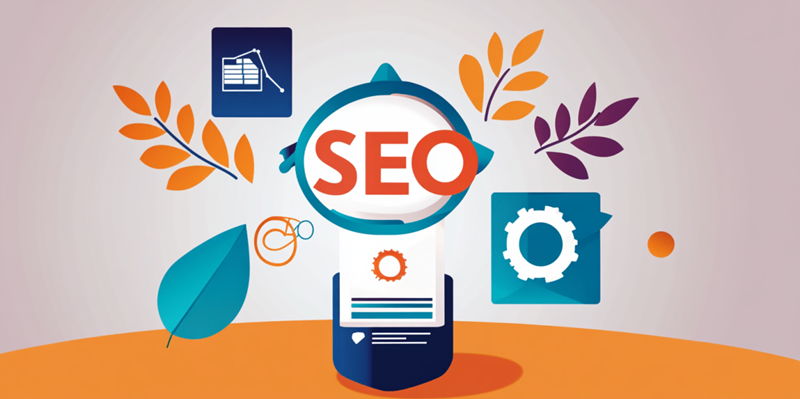Search Engine Optimization (SEO) is a fundamental aspect of digital marketing that aims to enhance the visibility of websites on search engines like Google and Bing, ultimately driving organic traffic and improving rankings for relevant content, products, services, and information. As a digital marketing discipline, SEO holds a place of critical importance due to its ability to attract high-quality, unpaid traffic which can significantly influence business outcomes.
The Importance of SEO
SEO’s role in driving organic search traffic is vital, with a BrightEdge study noting that organic search accounts for 53% of all website traffic. High rankings in search results are directly linked to increased conversions and revenue. Organic traffic is highly valued because it includes visitors actively searching for what a website offers, making them more likely to engage and convert compared to other traffic sources.
Key Categories of SEO
SEO can be divided into three core types: Technical SEO, On-Page SEO, and Off-Page SEO, each addressing different facets of optimization.
Technical SEO
Technical SEO focuses on optimizing the technical aspects of a website to ensure it is easily crawlable, loads quickly, and offers a seamless user experience. This involves improving site architecture, enhancing page speed, ensuring mobile compatibility, and employing secure protocols (HTTPS).
On-Page SEO
On-Page SEO involves optimizing individual web pages to improve their search rankings. This includes content quality, keyword optimization, meta tags, header tags, and internal linking. High-quality content that is relevant and engaging helps meet the needs of both users and search engines, boosting the site’s authority and ranking.
Off-Page SEO
Off-Page SEO refers to activities conducted outside of the website to improve its authority and search rankings. This includes link building, social media marketing, and brand building efforts. Acquiring high-quality backlinks from reputable sites increases a website’s credibility and visibility in search engine results.
Specialized SEO Areas
Different sectors necessitate tailored SEO strategies, leading to various specializations such as Ecommerce SEO for online stores, Local SEO for businesses targeting specific geographic areas, and Enterprise SEO for large organizations. Each specialization addresses the unique challenges and opportunities of its respective industry.
SEO Processes
The process of SEO entails several essential steps: researching keywords and trends, planning content strategies, creating and implementing optimized content, monitoring performance, and analyzing results. Continuous maintenance and updates are crucial to adapt to evolving search engine algorithms and user behaviors.
The Evolution of SEO
SEO is a dynamic field that evolves with technological advancements and changing user behaviors. Recent trends include the rise of AI-driven search results, mobile-first indexing, and the emphasis on user experience. Staying current with these trends is critical for maintaining competitive search rankings.
SEO as a Growing Industry
Search Engine Optimization (SEO) plays a crucial role in digital marketing, aiming to improve the visibility of websites on search engines such as Google and Bing. The primary goal of SEO is to increase organic traffic by enhancing search engine rankings for pertinent content, products, services, and information. By optimizing a website’s structure and content, SEO helps it appear higher on search engine result pages (SERPs). This organic traffic is highly valuable as it typically consists of users actively seeking the information or services offered, making them more likely to convert into customers. Unlike paid advertising, SEO focuses on attracting high-quality, unpaid traffic, which can have a substantial impact on a business’s success. Effective SEO strategies often include keyword research, on-page optimization, content creation, link building, and technical SEO. Mastering these techniques can significantly boost a website’s performance in search results, thereby enhancing its ability to reach a broader audience. In the realm of digital marketing, SEO is indispensable, making it a priority for businesses aiming for long-term growth and visibility.

